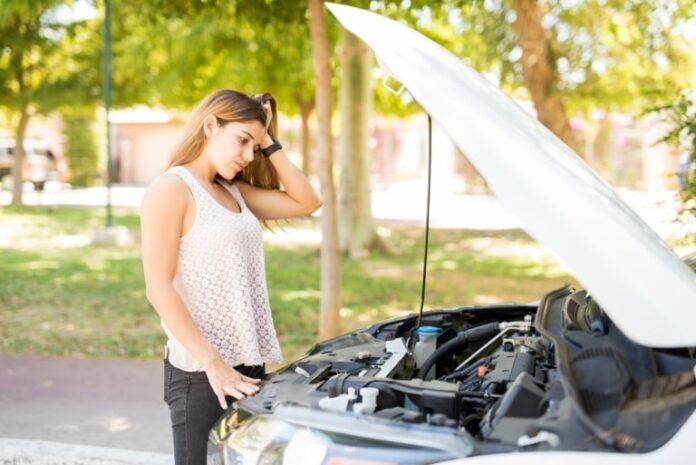Owning a car comes with a fair share of responsibilities, and one of the most important among them is ensuring its regular maintenance and timely repairs.
Ignoring potential issues with your vehicle can not only lead to costly repairs down the road but also compromise your safety and that of others on the road.
Recognizing warning signs that indicate your car needs immediate attention can save you from major breakdowns and accidents.
In this blog post, we will explore some crucial warning signs that should prompt you to seek repairs for your car without delay.
Dashboard Warning Lights
Dashboard warning lights serve as crucial indicators of potential problems within your vehicle’s systems.
These lights, such as the check engine light, ABS light, or others, are designed to alert you to issues that may compromise the safety or performance of your car, experts from the CarMax repair shop explain.
Ignoring these warning lights is akin to ignoring the early signs of illness in your body – it can lead to severe consequences.
For instance, disregarding the check engine light could result in significant engine damage, potentially leaving you stranded on the side of the road.
Similarly, ignoring the ABS light could lead to brake failure, compromising your ability to stop safely.
Each warning light serves as a vital communication from your car, urging you to take action and address the underlying issue promptly.
By heeding these warnings and seeking timely repairs, you can prevent more extensive damage, ensure your safety on the road, and ultimately extend the lifespan of your vehicle.
Strange Noises
Strange noises emanating from your vehicle should never be dismissed lightly, as they often serve as early warning signs of underlying issues.
When you hear grinding or squealing noises upon applying the brakes, it’s likely a signal that your brake pads or rotors are worn down and in need of replacement.
Ignoring these sounds could lead to compromised braking performance, increasing the risk of accidents.
Similarly, a knocking sound originating from under the hood may indicate more serious engine problems, such as worn-out bearings or piston issues.
Continued neglect of these noises could result in significant engine damage, potentially leaving you stranded and facing costly repairs.
It’s essential to address these strange noises promptly by seeking the expertise of a qualified mechanic.
By doing so, you can prevent further damage to your vehicle, ensure your safety on the road, and avoid the inconvenience of unexpected breakdowns. Remember, listening to your car can save you from major headaches down the line.
Vibrations
Feeling unusual vibrations while behind the wheel can serve as a clear indication of underlying issues with your vehicle that demand immediate attention.
If you notice vibrations in the steering wheel, it could signify problems with your tires, suspension components, or wheel alignment.
Left unaddressed, these issues can lead to uneven tire wear, reduced stability, and compromised handling, increasing the risk of accidents, especially at higher speeds or during emergency maneuvers.
Similarly, vibrations felt through the brake pedal are often a sign of brake-related issues, such as warped brake rotors or worn brake pads.
Ignoring these vibrations can result in diminished braking performance, longer stopping distances, and even brake failure in extreme cases, putting you and other road users in grave danger.
It’s essential not to overlook these vibrations, as they can progressively worsen and lead to more significant problems over time.
By promptly addressing the root cause of the vibrations with the help of a qualified mechanic, you can restore your vehicle’s performance, ensure your safety on the road, and prevent costly repairs down the line.
Remember, your vehicle’s smooth operation and your well-being depend on your attentiveness to these warning signs.
Fluid Leaks
Fluid leaks beneath your vehicle demand urgent attention, as they often serve as red flags for underlying issues that could jeopardize your car’s performance and safety.
Regardless of whether it’s engine oil, transmission fluid, coolant, or brake fluid, any leak warrants immediate investigation.
Engine oil leaks, for instance, not only indicate potential engine damage but can also lead to overheating if the oil level drops too low.
Similarly, coolant leaks pose a severe risk of engine failure due to overheating, which could result in costly repairs or even engine replacement.
Furthermore, ignoring fluid leaks can have far-reaching consequences beyond engine damage.
For instance, leaking brake fluid can compromise your vehicle’s braking system, leading to decreased stopping power and an increased risk of accidents.
Moreover, fluid leaks pose environmental hazards and can contaminate soil and water sources if left unaddressed.
In addition to the mechanical implications, fluid leaks can also pose a fire hazard, especially if the leaking fluid comes into contact with hot engine components or electrical systems.
Given the potential severity of fluid leaks, it’s crucial to promptly address any signs of leakage by consulting a qualified mechanic.
By doing so, you can prevent further damage to your vehicle, ensure your safety on the road, and mitigate the risk of costly repairs or accidents in the future.
Remember, vigilance regarding fluid leaks can help preserve both your vehicle’s longevity and your well-being.
Overheating
When confronted with an overheating engine, swift action is imperative to prevent potentially catastrophic consequences.
Should you observe the temperature gauge creeping into the ominous red zone or detect wisps of steam billowing from beneath the hood, it’s paramount to act decisively.
Safely pull over to the side of the road and promptly turn off the engine to prevent further escalation of the issue.
Continuing to drive while the engine is overheating poses a grave risk of severe engine damage, which could culminate in complete engine failure and necessitate costly repairs or replacement.
The root causes of engine overheating can vary but commonly stem from malfunctions within the vehicle’s cooling system.
A leaking radiator, for instance, compromises the system’s ability to dissipate heat effectively, while a faulty thermostat may disrupt the regulation of engine temperature.
Additionally, issues with coolant levels or circulation, such as leaks or blockages, can contribute to overheating.
Wrap Up
Ignoring warning signs that indicate your car needs immediate repairs can have serious consequences, both financially and in terms of safety.
Regular maintenance and prompt attention to potential issues are essential for keeping your vehicle running smoothly and ensuring your safety on the road.
By recognizing and addressing warning signs early on, you can avoid costly repairs, breakdowns, and accidents, ultimately prolonging the life of your car.
So, the next time you notice any of these warning signs, don’t hesitate to take your car to a qualified mechanic for a thorough inspection and necessary repairs. Your safety and peace of mind are worth it.




